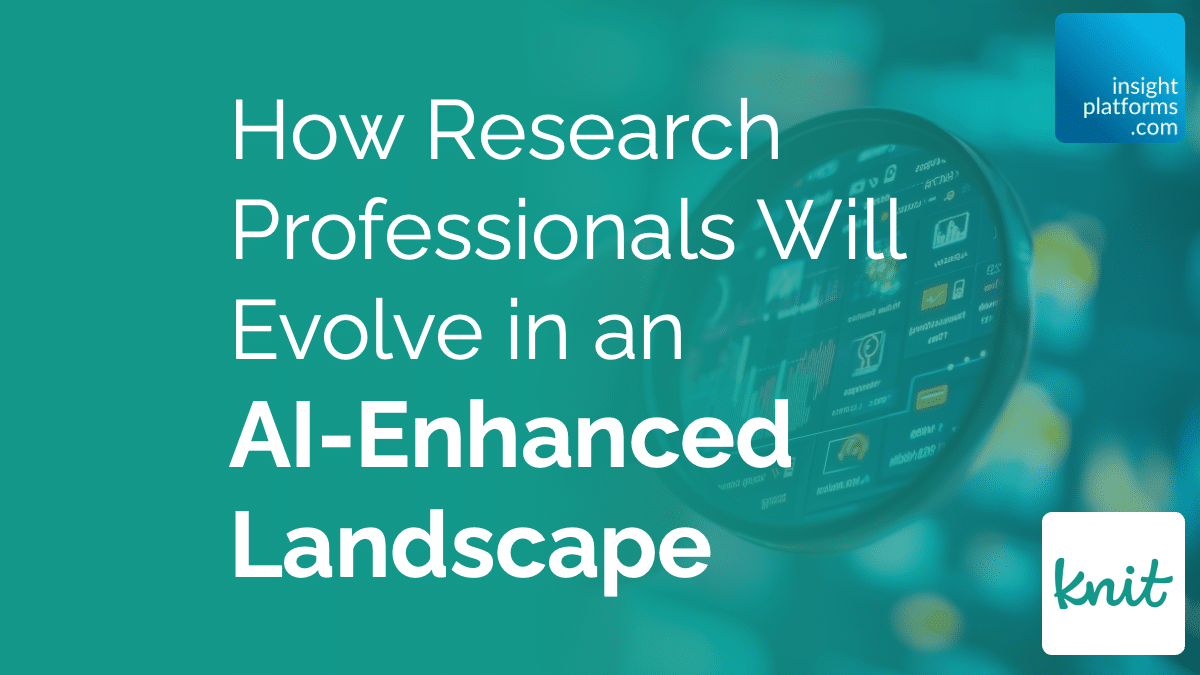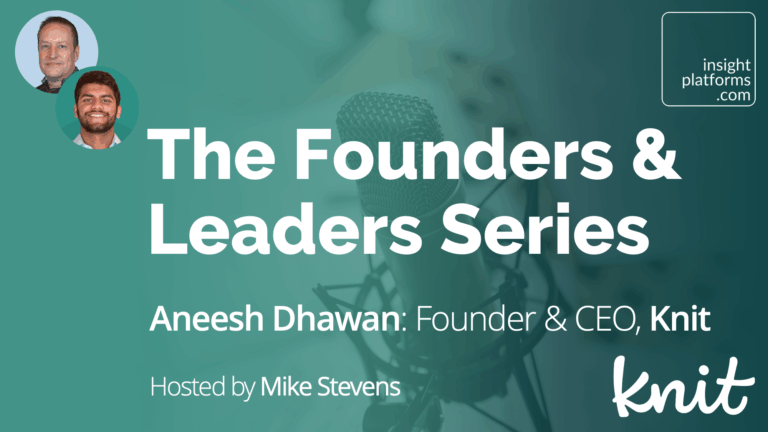
How Research Professionals Will Evolve in an AI-Enhanced Landscape
By Knit
- article
- AI
- Freelancer Researchers
- Automated Survey Research
- Automated Reporting
The research and insights industry stands at a critical turning point. Artificial intelligence has evolved from a futuristic promise to a practical reality, reshaping how we gather, analyse, and interpret data. This rapid shift has naturally sparked anxiety among research professionals: Will AI replace human researchers entirely?
The truth is more nuanced. Rather than replacing researchers, AI is transforming their role. The role of the researcher is evolving into something potentially more impactful: the orchestrator.
This article covers part of the The Founders & Leaders Series podcast episode 1. Listen to the full episode here:
Episode 1: Aneesh Dhawan, Founder & CEO, Knit
The Researcher as Orchestrator
In this new model, researchers step beyond traditional data collection and analysis. They become orchestrators, directing how research is conducted using their expertise, methodologies, company context, judgment, preferences, and intuition.
Rather than being led by technology, orchestrators take the lead: defining the right questions, selecting appropriate methodologies, and framing findings so they resonate within an organisation. AI becomes an instrument in their hands, not a substitute.
Think of a conductor guiding an orchestra. The conductor doesn’t play every instrument, they bring the pieces together to create something greater than the sum of its parts. In the same way, research professionals will increasingly coordinate AI tools to deliver insights of unprecedented depth and scale.
Essential Skills for the Research Orchestrator
As this transition unfolds, certain skills will define the successful research professional:
- Strategic direction: setting clear research objectives that align with business priorities.
- Methodological expertise: understanding which approaches to use, their strengths and limitations.
- Context integration: applying organisational, industry, and cultural understanding to enrich AI outputs.
- Narrative crafting: turning data into compelling, actionable stories that inspire decision-making.
- Ethical judgment: navigating issues such as data privacy, algorithmic bias, and research integrity.
The Changing Day-to-Day
The daily life of research professionals is already changing. Tasks like survey programming, data cleaning, and creating basic visualisations are increasingly automated.
This creates space for higher-value activities:
- Defining research strategies and methodological approaches.
- Collaborating with stakeholders to better understand the business context.
- Interpreting insights and translating them into actionable recommendations.
- Crafting presentations and stories that drive organisational change.
- Continuously refining AI outputs to maintain quality and relevance.
This shift also moves researchers towards continuous insight generation. This means that instead of delivering knowledge in isolated projects, they become an always-on source of understanding, supporting decision-making in real time.
The Enduring Value of Human Judgment
Despite AI’s impressive capabilities, some aspects of research can never be automated. Left to run on its own, AI can produce outputs that feel generic or hollow, described as “AI slop”. This can become problematic if systems begin to feed exclusively on AI-generated content, leading to an atrophy of meaning as insights progressively degrade.
Human judgment provides the guardrails that prevent this drift. Researchers bring lived experience, intuition, cultural context, and an understanding of business realities that no algorithm can truly replicate. These qualities turn data into insight.
A Framework for the Research Evolution
This transformation is not a binary battle of humans versus machines. Instead, it’s a continuum:
- From data collection to insight orchestration: researchers increasingly focus less on gathering data and more on orchestrating the entire insights ecosystem.
- From analysis to meaning-making: AI handles the more analytically heavy lifting, leaving researchers to extract business implications.
- From isolated projects to continuous insight infrastructure: research transitions from ad-hoc to always-on.
- From execution to innovation: with routine tasks automated, creativity and methodological experimentation flourish.
- From reporting to influencing: the ultimate value shifts from delivering reports to driving meaningful organisational change.
Conclusion
AI is not here to erase research professionals but to redefine their potential. The researcher as orchestrator can combine the scale and speed of AI with the human strengths of context, judgement, creativity and narrative.
This evolution requires both individual adaptation and organisational reimagining. Research teams must develop new skills, workflows, and collaborative approaches. Organisations must recognise the changing nature of research work and create environments where human-AI collaboration can flourish.
In this AI-enhanced future, researchers are not sidelined. They are at the centre, conducting the symphony of insights that will drive the next era of decision-making.
This article covers parts of the The Founders & Leaders Series podcast episode 1. Listen to the full episode here:



